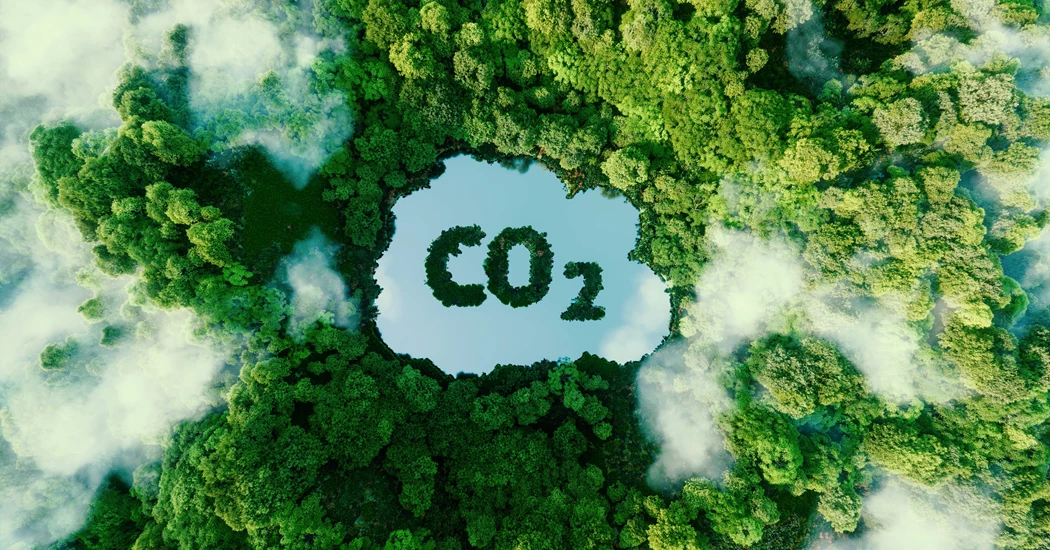What if Africa was the solution to the world’s net zero?
Africa has a unique opportunity to lead the world’s transition to a low-carborn future, according to a new report by the Africa Finance Corporation (AFC), a Pan-African leading infrastructure financier. The report calls for the recognition of the continent's natural carbon sinks, such as forests, grasslands, peatlands and mangroves, as a vital and undervalued resource for the global fight against global warming.
Africa hosts some of the world's most powerful carbon sinks, which can absorb and store huge amounts of carbon dioxide from the air, while boosting biodivesrity and resilience. The report says that Africa’s forests alone capture a net 600m tonnes of carbon dioxide each year, more than any other forest ecosystem on Earth. This is equivalent to offsetting 76% of emissions from all of Africa, 21% of Europe's, 18.5% from the US, or 4% from the whole world, it says.
"Despite its capacity to remove vast amounts of CO2 from the atmosphere, Africa accounted for just 11% of offsets issued between 2016 and 2021, with an even smaller share only 3% linked to the region's natural carbon sinks,” President & CEO of AFC, Samaila Zubairu, says in the executive summary of the report, titled How Africa Can Unlock World’s Most Promising Net-Zero Solution.
“Africa should rightfully play a far bigger role in the global carbon markets that reflects its significant contribution towards mitigating the effects of climate change."
The challenge of fairness
Africa suffers from the global rules that favour future over past emissions cuts, the report says, critcising the rules of global carbon market for unfairly penalising the continent.
The report argues that the rules reward countries that plan to cut their emissions in the future, rather than those that have already kept them low in the past. This approach, it says, creates a perverse incentive for countries to exploit their forest resources, as they can claim a high risk of deforestation and demand more compensation for preserving them.
"This situation calls for strong advocacy by Africa against these unintended rewards and incentives,” Zubairu says.
“The global community should acknowledge and rectify the unfairness and illogical nature of these rules, which overlook the significant contributions of regions like Africa in mitigating climate change through natural carbon sinks."
The opportunity of investment
Africa needs clean energy and carbon markets to cope with its population boom.
By 2050, the continent will have more than two billion people, the fastest growth rate in the world, according to the United Nations. This will put enormous pressure on its energy resources and its environment.
To meet its energy needs without harming the planet, the continent must embrace clean and cheap sources of power, such as wind, solar and hydro. This will not only help Africa reduce greenhouse gas emissions, but also boost its economic development and attract investors.
The AFC report shows how the continent can seize the opportunities of the green transition by attracting investments in climate ventures that can affordably and reliably remove vast amounts of carbon from the air.
The report emphasises that in a properly functioning carbon market, Africa’s natural assets, such as forests and wetlands, can generate high quality and high value demand as the world faces a climate crisis.
The report identifies five key areas where Africa needs to create its own value chain for carbon emissions reduction, with local involvement at all stages, backed by expertise, long-term funding, and capacity. These are:
- Project developers who aim to achieve the best results for the climate and local people;
- Project finance experts and dedicated financing to enable the supply of high-quality carbon offsets;
- Verification infrastructure to ensure the credibility of the offsets;
- Market makers and traders to boost Africa’s share in the most profitable segment of the offsets market;
- Capacity building support to help governments and regulators scale up carbon markets by providing governments and regulators with the necessary skills and awareness.
The report stresses that in realising true value for its natural assets, it is paramount that local stakeholders, communities, and governments become the primary beneficiaries, helping to ensure that their offsets are sustainable, retain integrity, and that the revenues will be redeployed to further projects fighting climate change.
The future of Africa and the world
The AFC report argues that Africa needs to change its approach to the global carbon markets. It says that Africa should not sell its natural assets cheaply in a flawed and undervalued market. Instead, it should create its own value chain for carbon emissions reduction, with global participation, that captures and retains value for Africa and the world for generations.
“Global warming is the responsibility of the industrialised world, but solving global warming is Africa’s opportunity,” Zubairu says.
Mickael Vogel, Director & Head of Research at Hawilti, will be participating in the African Dialogue Conference as a part of EGYPES 2024 in Cairo, from February 19-21. Click here for more information and to register as a delegate.





